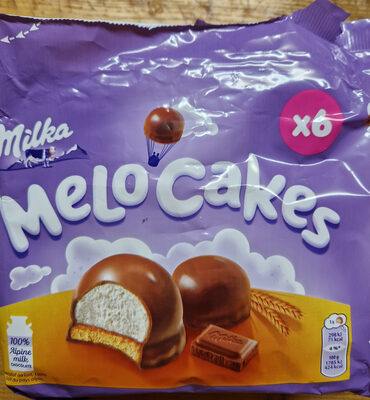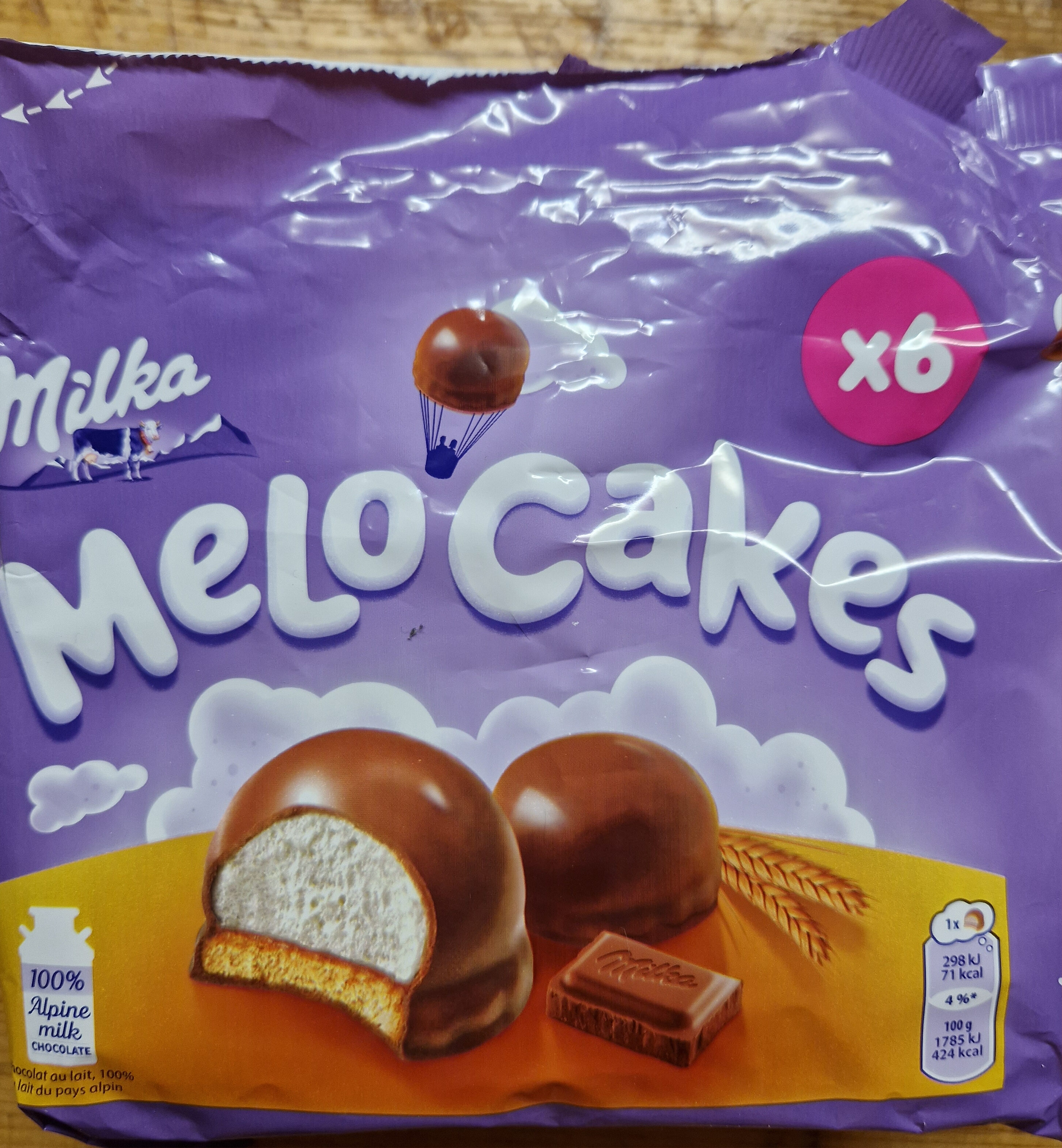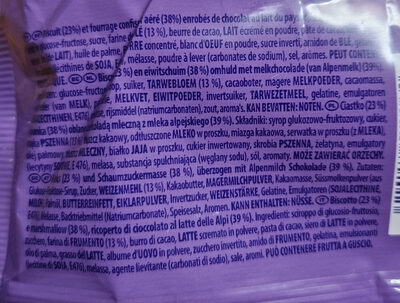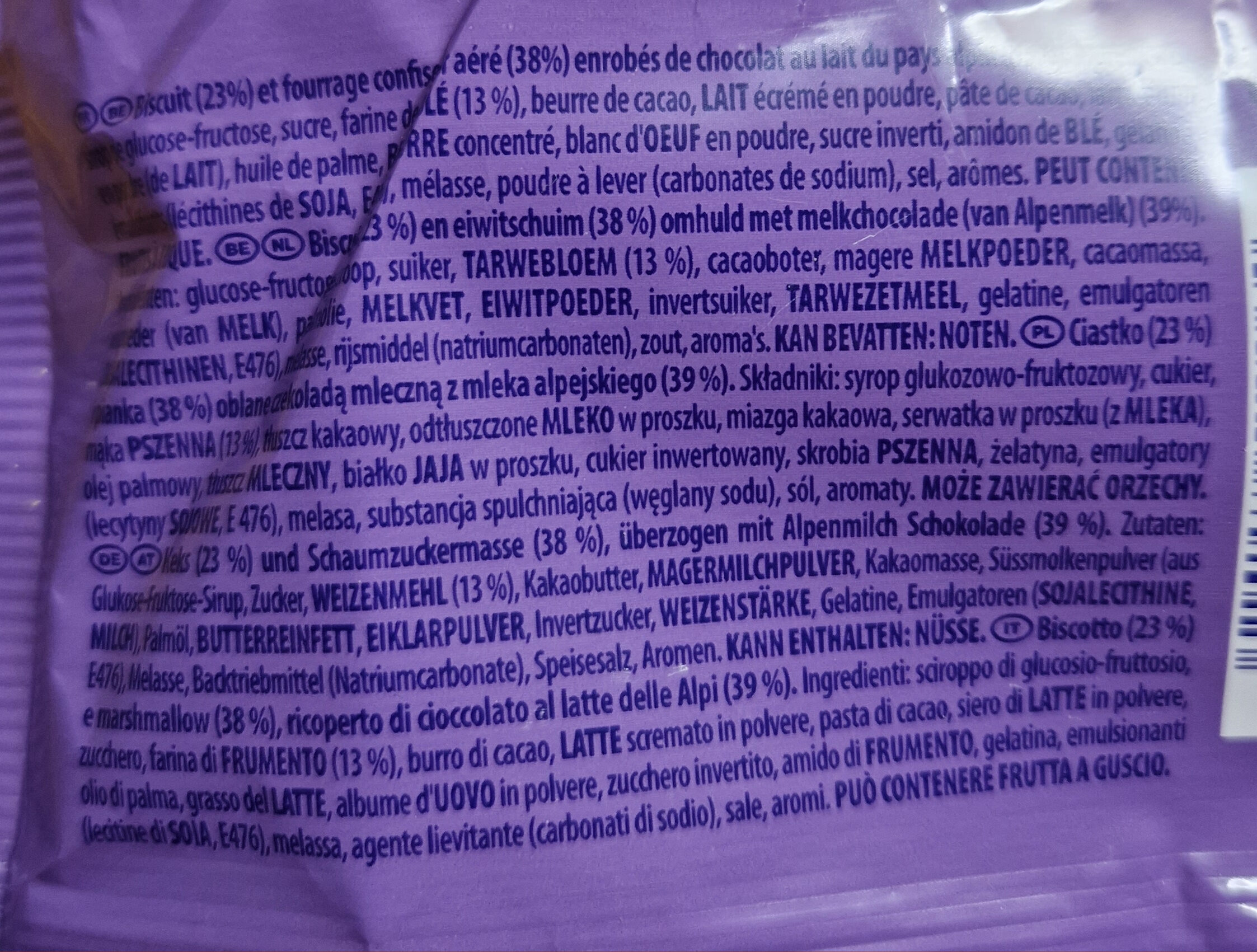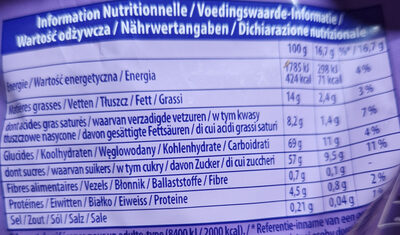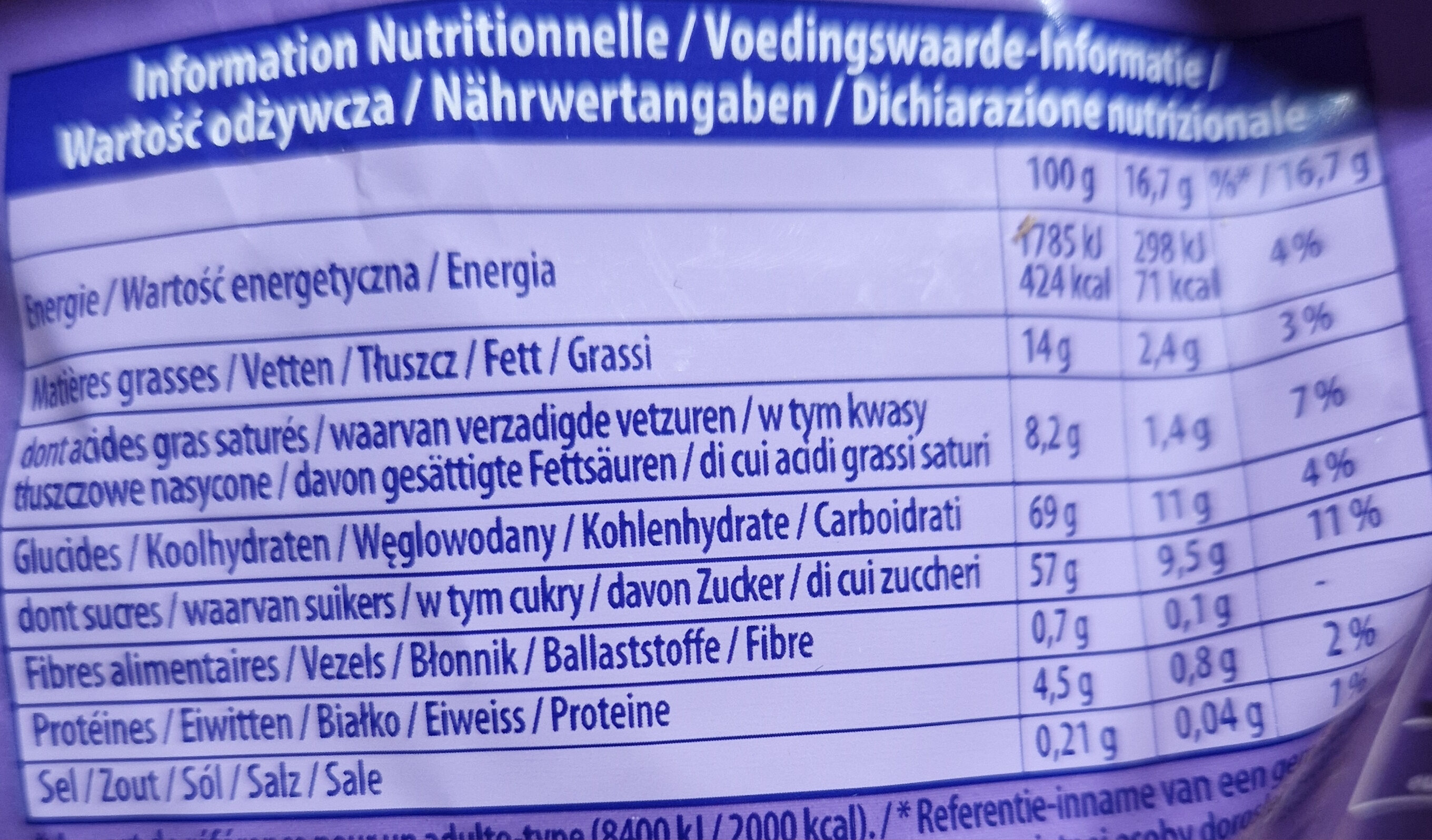Mello Cakes - Milka - 100g
This product page is not complete. You can help to complete it by editing it and adding more data from the photos we have, or by taking more photos using the app for Android or iPhone/iPad. Thank you!
×
Barcode: 5410158510064 (EAN / EAN-13)
Quantity: 100g
Brands: Milka, Mondelez International
Categories: Snacks, Sweet snacks, Cocoa and its products, Confectioneries, Frozen foods, Bars, Chocolate candies, Bars-covered-with-chocolate, Chocolate biscuity bars
Matching with your preferences
Report a problem
Data sources
Product added on by kiliweb
Last edit of product page on by quechoisir.
Product page also edited by autorotate-bot, charlesnepote, countrybot, g123k, halal-app-chakib, inf, marie0783, mathi647, openfoodfacts-contributors, spotter, yuka.WmFRTkt2UUZ2cU1PaXNWaTFTTGNwc3QrMm9Xa1JVMnNHZVl4SVE9PQ, yuka.ZDZjSEZLc0JxY1pidU0wYzJFcUkzb3BsM1phcWYzR3JPZGdiSVE9PQ, yuka.sY2b0xO6T85zoF3NwEKvlkFqTOKPohKfMRrRsHC7n86cNpfEbuxi4tTqKas, yukafix.
